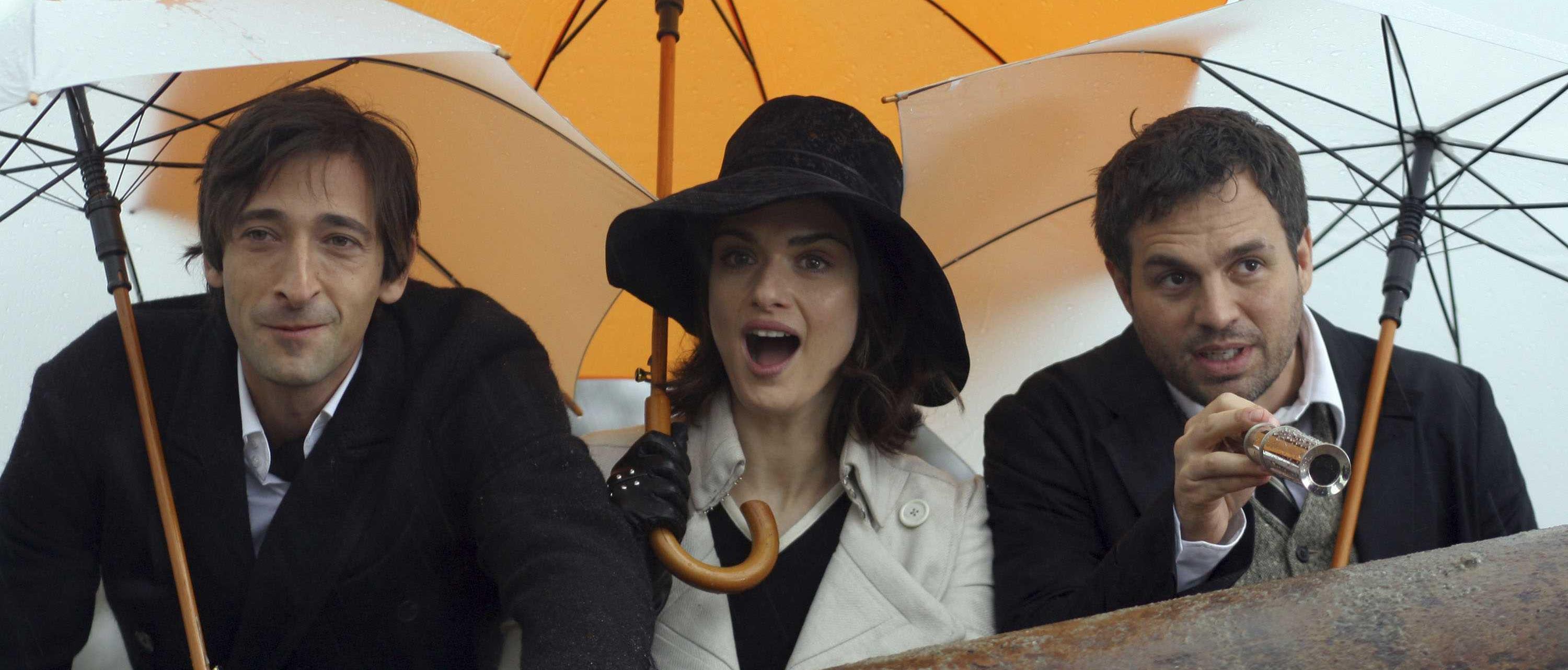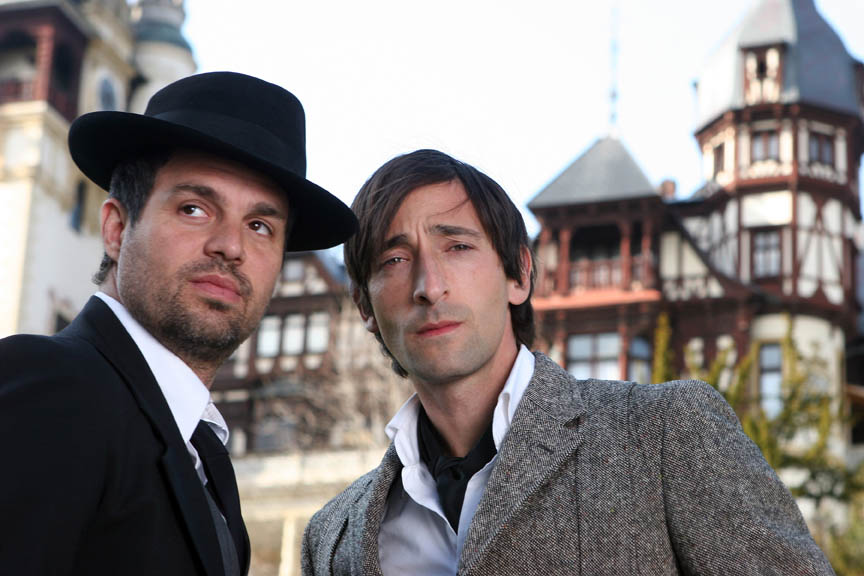
But, sadly, the well-meaning but ultimately rather flimsy Brothers Bloom suffers from serious flaws. It’s a relentlessly good-natured caper flick, so harping on its problems feels a bit like acting the Grinch. But, nonetheless, The Brothers Bloom is too coy and precious by half. The main problem is that, for whatever reason, it’s been Wes Andersonized within an inch of its life. The static shots crufted over with hyperstylized bric-a-brac, the low-fi, DIY scene cards, the many peculiar eccentricities of the upper crust, the hipster’s vinyl collection of forgotten oldies comprising the soundtrack, the somewhat dubious minority characters, the jaunty, vaguely Tintin-ish plot — It got to the point where I sometimes forgot if Adrien Brody was supposed to be hectored by older brother Mark Ruffalo or by older brother Owen Wilson.
At any rate, The Brothers Bloom begins in Wes Anderson-style and never lets it go. When we first encounter the titular siblings, they’re two young orphans who already dress like the Artful Dodger, and who — moving from foster home to foster home — are already developing a taste for the long con. Even in these early years, the fraternal dynamic is set. Stephen, the elder (eventually, Ruffalo), is the idea-man. Using large flowcharts to get his beats across, he conceives extended, needlessly elaborate cons mainly as long-winded adventure stories to amuse his little brother. Meanwhile, Bloom, the younger (soon to be Brody), is the unwitting and eventually deeply beleaguered star of Stephen’s tales. Just like Tom Reagan in Miller’s Crossing, he tends to achieve the desired outcome of his brother’s gambits, but lose the girl in the process.
After they grow up, the brothers — along with their partner-in-crime, the basically mute explosives expert Bang Bang (Rinko Kikuchi — more on her in a bit) — wreak havoc on various unsuspecting marks and gain notoriety all across the globe. But when Bloom has finally had enough, Stephen decides to concoct a bravura finish: A final job, one that will involve grifting a beautiful, bizarre, and deeply lonely New Jersey heiress, Penelope Stamp (Weisz). Will Bloom finally get the girl this time? Ah, no peeking — that would ruin the trick.
The Brothers Bloom is as obsessed with legerdemain and sleight-of-hand as, say, The Prestige, and as the movie moves to its conclusion its central conceit — cons/tricks = seduction = storytelling = filmmaking — grinds louder and louder. (Speaking of which, as part of its pledge Brothers telegraphs relatively early that the film will end in Mexico. This is a mistake. Partly because, as the movie wears out its welcome, I found myself wishing more and more that they’d get South of the Border already. And, when the movie *doesn’t* end in Mexico, it makes the convoluted, almost inchoate final act — in Russia, in case you were wondering — seem that much more meandering and purposeless.)
The problem is it’s hard to shake the feeling that we’ve seen this trick before. Like I said, this is a Wes Anderson movie through and through, and if, like me, you’re kinda over that whole aesthetic at this point, you’ll begin to lose interest even while Johnson is still dealing the cards. (Admittedly, the moments I liked best in Bloom probably count as Wes Andersonisms, from — for me, the biggest laugh in the movie — Rachel Weisz’s three-second-turn as a club DJ to Weisz and Brody dancing the bolero aboard a pleasure cruise on a moonlit night.) And don’t get me started on Robbie Coltrane, who even more than everyone else seems like an unnecessary emissary from the Andersonverse here.
Also in the debit department, there is the matter of Bang Bang. I won’t say she’s a racial stereotype that’s offensive, per se (particularly given the noise coming out of Transformers 2 this past week — it seems that bar is still set really low) — but everything from her unfortunate name (at best a Nancy Sinatra reference, but still too chop-socky by half) to her stint doing Tokyo karaoke suggests there’s a lot of really embarrassing Exotic Othering on Johnson’s part going on here. Honestly, when your Asian female character has more screen time and less dialogue than Chewbacca, something has gone horribly wrong. Next time, how about write the poor girl some lines?
At any rate, I can see some folks, particularly the Anderson-inclined, being able to overlook the many flaws of The Brothers Bloom and just see it as an easy-on-the-eyes, unabashedly romantic caper story. I am not one of those folks — At best, it’s a rental.
[Note: I realize The Brothers Bloom came out ages ago for many GitM readers. But, what can I say? It got here only recently — At the moment, I’m a victim of the limited release schedule. In a perfect world, I’d be talking about Moon, Whatever Works and/or The Hurt Locker right now, instead of studiously avoiding the 45 showings a day of Transformers 2. As it is, hopefully I can get to Michael Mann’s Public Enemies sometime over the coming weekend.]


